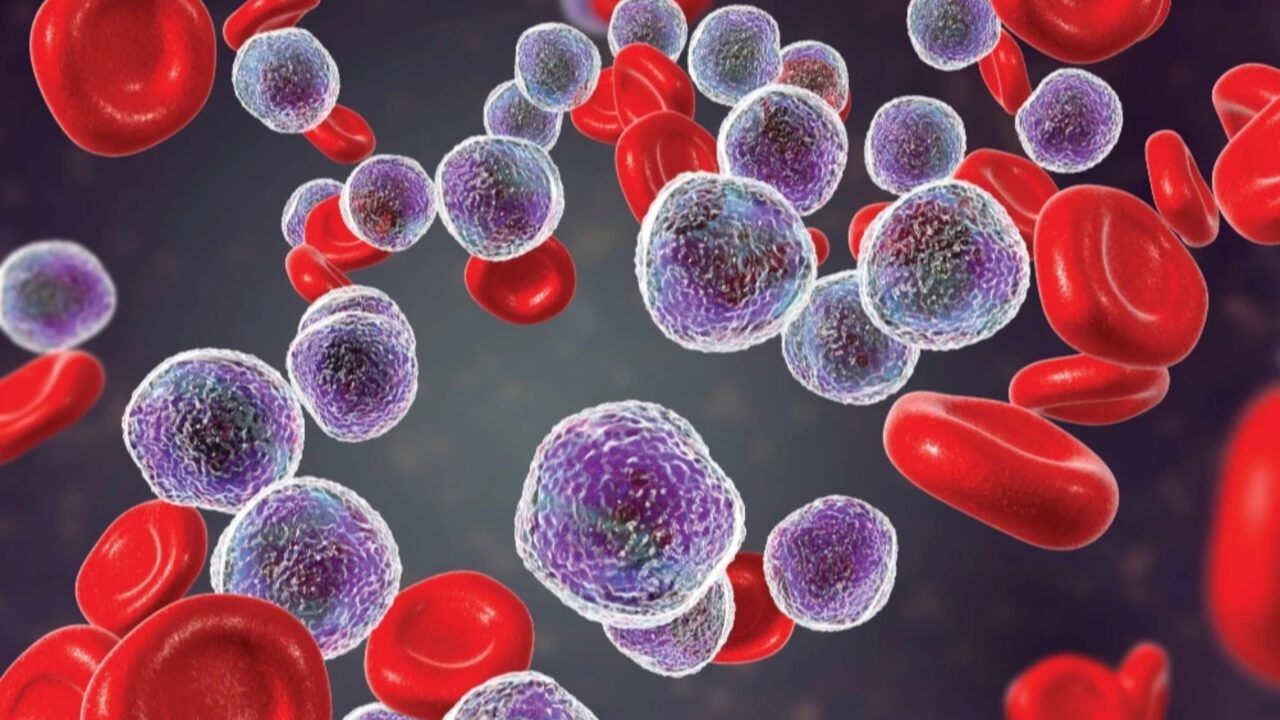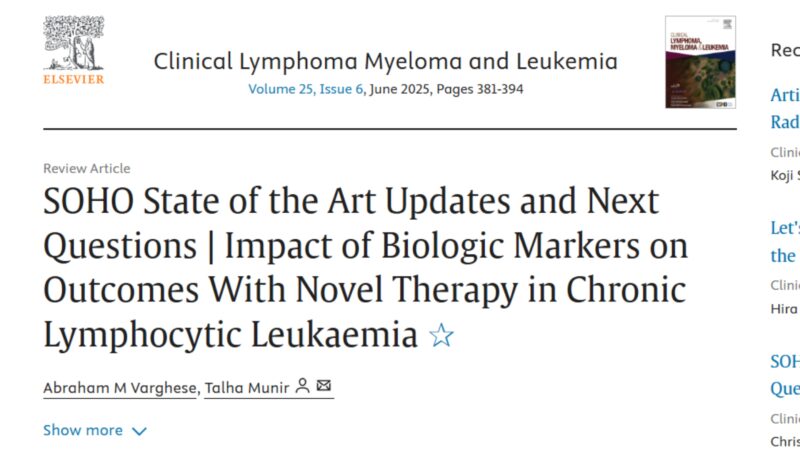
parkwaycancercentre.com
Jun 15, 2025, 20:46
James P Crowley: Understanding Chronic Lymphocytic Leukaemia – Key Insights on TP53 Aberrations and BTK Inhibitors
James P Crowley, Professor of Medicine emeritus at Brown University, shared a post on LinkedIn:
“Chronic Lymphocytic Leukaemia (CLL) is the most common leukaemia of the western world and is a highly heterogenous disease, both in terms of clinical behaviour and biology. Around 70% of patients are diagnosed as asymptomatic disease discovered incidentally on routine blood test and many of them will likely eventually be put on a treatment. But some argue that as many as 30% of CLL patients may actually not receive much benefit from any treatment or after successful treatment to the point of no detectable CLL from prolonged treatment.
(As a fellow in hematology decades ago, I was told that in CLL, ignore the leukemic blood count: if no blood transfusions were required that meant that no treatment of the CLL would benefit the patient.)
In today’s world, TP53 aberrations including del(17p) and/or TP53 mutation either alone or in combination are so far, the most important prognostic factor in CLL retaining relevance for both chemo-immune therapy (CIT) and targeted treatment eras. The TP53 gene, located at chromosome band 17p13.1, which encodes the p53 protein, a key player in the DNA damage response pathway is crucial in regulating cellular processes such as survival, apoptosis, and DNA repair. Treatment indication in CLL hasn’t changed much over several years. It still relies almost exclusively on the presence of symptomatic disease and no clear benefit has yet been demonstrated thus far in treating early-stage asymptomatic disease even in the targeted treatment era.
FCR is a standard chemotherapy treatment for chronic lymphocytic leukemia (CLL) that combines fludarabine, cyclophosphamide, and rituximab. However, TP53 aberration remain the most significant prognostic marker even with targeted treatment and when a decision to treat CLL is made then indefinite treatment with BTKi such as ibrutinib may be the best treatment for such patients but for patients with no detectable minimum measurable disease studies are recommended.
BTK inhibition has markedly improved outcomes for all patients with CLL. Nowhere has this been more evident than for patients with TP53 deletion or mutation who have a median PFS of ∼1 year with FCR but who can expect a 6-year PFS of ∼60% with BTK inhibitor ibrutinib. By blocking BTK, ibrutinib disrupts the signals that tell cancer cells to grow and multiply, ultimately leading to their death. Choice of BTKi depends mostly on the comorbidities and availability of new clinical studies based on emerging research.
BTK inhibitors are a valuable treatment option for CLL, but the development of BTK mutations, especially in the context of TP53 mutations, can limit their effectiveness. Understanding the interplay between BTK and TP53 mutations is crucial for developing more effective strategies for managing BTK inhibitor resistance and improving outcomes for patients with CLL and other B-cell malignancies.”
Title: SOHO State of the Art Updates and Next Questions | Impact of Biologic Markers on Outcomes With Novel Therapy in Chronic Lymphocytic Leukaemia
Authors: Abraham M Varghese, Talha Munir
Read the Full Article on Elsevier.

-
Challenging the Status Quo in Colorectal Cancer 2024
December 6-8, 2024
-
ESMO 2024 Congress
September 13-17, 2024
-
ASCO Annual Meeting
May 30 - June 4, 2024
-
Yvonne Award 2024
May 31, 2024
-
OncoThon 2024, Online
Feb. 15, 2024
-
Global Summit on War & Cancer 2023, Online
Dec. 14-16, 2023
Sep 7, 2025, 05:24
Sep 7, 2025, 05:18
Sep 7, 2025, 05:14
Sep 7, 2025, 05:09
Sep 7, 2025, 05:05
Sep 7, 2025, 04:54
Sep 7, 2025, 04:53
Sep 7, 2025, 04:42
Sep 7, 2025, 04:25
